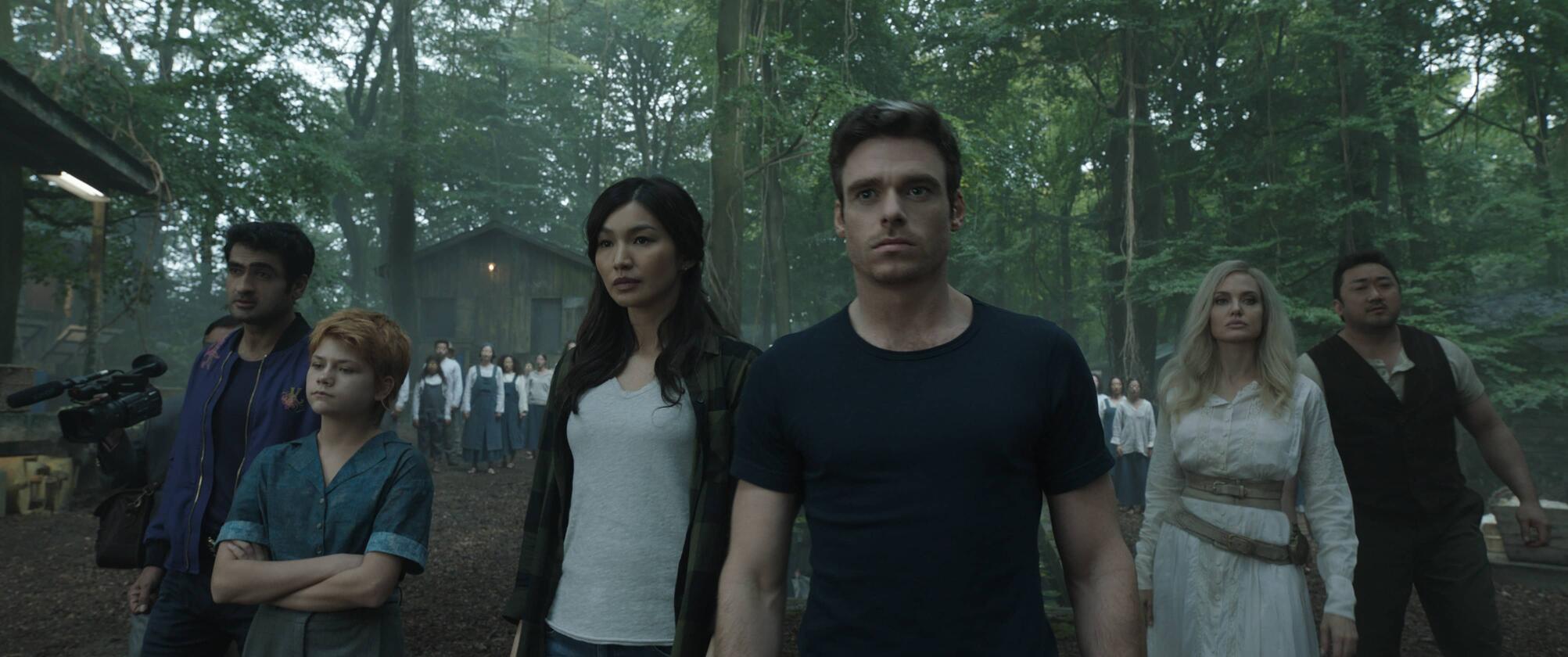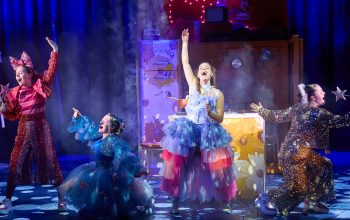It is hard to believe that Eternals, directed and co-written by Chloe Zhao, is the 26th addition to the inter-connected Marvel Cinematic Universe (MCU).
It was even harder to believe when it was announced that the now-Oscar-winning director Zhao would be the movie’s director.
After all, her previous films, including Nomadland, had gained notoriety for their ability to focus on the humanity of marginalised people suffering on the edges of society.
Marvel has seen high-profile directors step into its universe before, but not quite on the same level as Zhao, who won Best Director and Best Picture for Nomadland at the 2021 Oscars.
Her addition felt like a real triumph. In many ways, it also felt like a risk. Despite the director’s obvious film-making credentials, her prior filmography did not exactly scream cosmic superhero madness.
Zhao’s vision threatened to steer the universe too far away from what MCU fans have come to know and love: fantastical superhero movies with silly humour, epic action sequences and unthinkable character crossovers.
And yet, not only did Zhao succeed in creating a great Marvel movie, she succeeded in creating a great movie in the Marvel Universe.
The premise of Eternals is quite simple: seven thousand years ago, cosmic Gods known as the celestials created the Eternals to protect earth from evil creatures known as the deviants. The eternals wiped them out in the 16th century and went their separate ways – or so they thought.
In present day, a deviant lands in London and attacks the film’s lead Eternals Sersei (Gemma Chan) and Sprite (Lia McHugh).
The two are quickly helped by fellow Eternal Ikaris (Richard Madden), who decides a regroup is in order for a final showdown with the deviants.
Despite being one of the most ambitious cosmic movies Marvel has ever made, Zhao ultimately succeeds by centring Eternals around its characters and their connection with humanity.
Throughout the movie, the audience is given the history of the earth within the MCU. But rather than focus on the how, Eternals focuses more on the who. The movie is essentially a love-letter to humanity.
In a film about space gods, most of the film’s action surprisingly takes place on earth. To be clear, the Eternals are their own species. And yet, they feel like some of the most human characters ever introduced into the MCU.
Ajak (Selma Hayek), who serves as the mother figure for the the group, has a particularly strong affection for humans and their ability to love.
What makes the story so compelling is that the Eternals do not live to serve humans, they live to serve their creators – the celestials. This creates a fascinating tension between each character’s own desires and their allegiance to their creators.
The human angle adds a philosophical element to the movie too. It poses questions that so many of us have pondered ourselves. Why do terrible things happen on earth if God exists? Should superheroes really just sit and watch genocide take place in front of their eyes?
The Eternals clearly feel this burden throughout the movie, making centuries-old superheroes feel impossibly relatable.
The calibre of the cast undoubtedly helps Zhao too.
Angelina Jolie is particularly elegant with her nuanced performance of Thena, who is equally as consumed by trauma as she is with unshakable confidence in her own ability. Madden opts for nuance as he manages to make Ikaris feel like a Superman rip-off with something to hide.
Kumail Nanjiani’s Kingo adds a lot of energy to the film, and some real humour too. Certain lines that he delivered had the audience in genuine stitches, which was a refreshing alternative to the often stale, awkwardly-placed jokes other MCU films feel obliged to pepper throughout their scenes.
Chan is the supposed lead, though she suffers from what seems inevitable in heading a superhero ensemble – not getting the opportunity to lead. While her performance has impact, the majority of her screen time is shared, and she is often left blending in.
Kit Harrington’s screen time as Dane Whitman was also disappointing, though more is teased as the universe promises to move forward.
What felt genuinely refreshing was the time afforded to these characters. So often in superhero films, the backstory of the new hero will be glossed over. Before you know it, they will be fighting their opposite number with the fate of the universe at stake.
In Eternals, the fate of the universe is at stake, but it only feels that way because of the characters’ tangible desire to save it. And that stems from Zhao’s decision to place more emphasis on her characters and her stars, rather than epic, computer-generated action sequences.
The movie takes the time to introduce each character, their backstory and more importantly, their relationships. Once again, this is aided by the actors and the clear chemistry among them. In particular, the tension in the romance between Chan and Madden’s characters feels genuinely palpable.
There is no doubt that this is a Marvel movie with trademark moments peppered throughout – a touch of humour when things get too serious, not to mention acknowledgement of the wider universe through references to Captain America and Doctor Strange.
The movie contains many firsts, too. A sex scene, for one, as well as an onscreen gay kiss. Makkari (Lauren Ridloff) is also the first deaf hero to appear on screen in the MCU.
Marvel has delved into human-centric stories before. Even Avengers: Endgame – the largest comic book event in cinema history – focused on the common human experiences of guilt, loss and sacrifice.
Eternals takes it much further. It sacrifices action for drama, something which may be irreconcilable for many hardcore MCU fans.
While this bold new direction may not result in the same collective geek-out as previous MCU entries, Eternals is a refreshing take on the human side of super-heroism.
Editor





